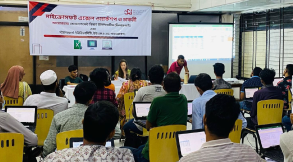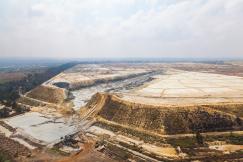Structural transformation and regional convergence in U.S. income have been long-standing trends. Caselli and Coleman (2001) discovered that 60% of regional convergence between the U.S. South and North from 1940 to 1990 is due to structural transformation. Our replication confirms these robust findings. Examining black and white populations separately, we find the magnitude of the regional income convergence was much larger for the black workers and structural transformation explains most regional income convergence for white workers but only 30% for black workers. Extending the analysis until 2020, we observe income convergence among black workers and divergence among white workers. Structural transformation’s role in income convergence or divergence from 1990 to 2020 is negligible.
STEG Working Paper Series
• Research Theme 2: Labour, Home Production, and Structural Transformation at the Level of the Household,
Cross-Cutting Issue 3: Inequality and Inclusion
Racial Heterogeneity in the U.S. Structural Transformation and Regional Convergence

Related content































































































